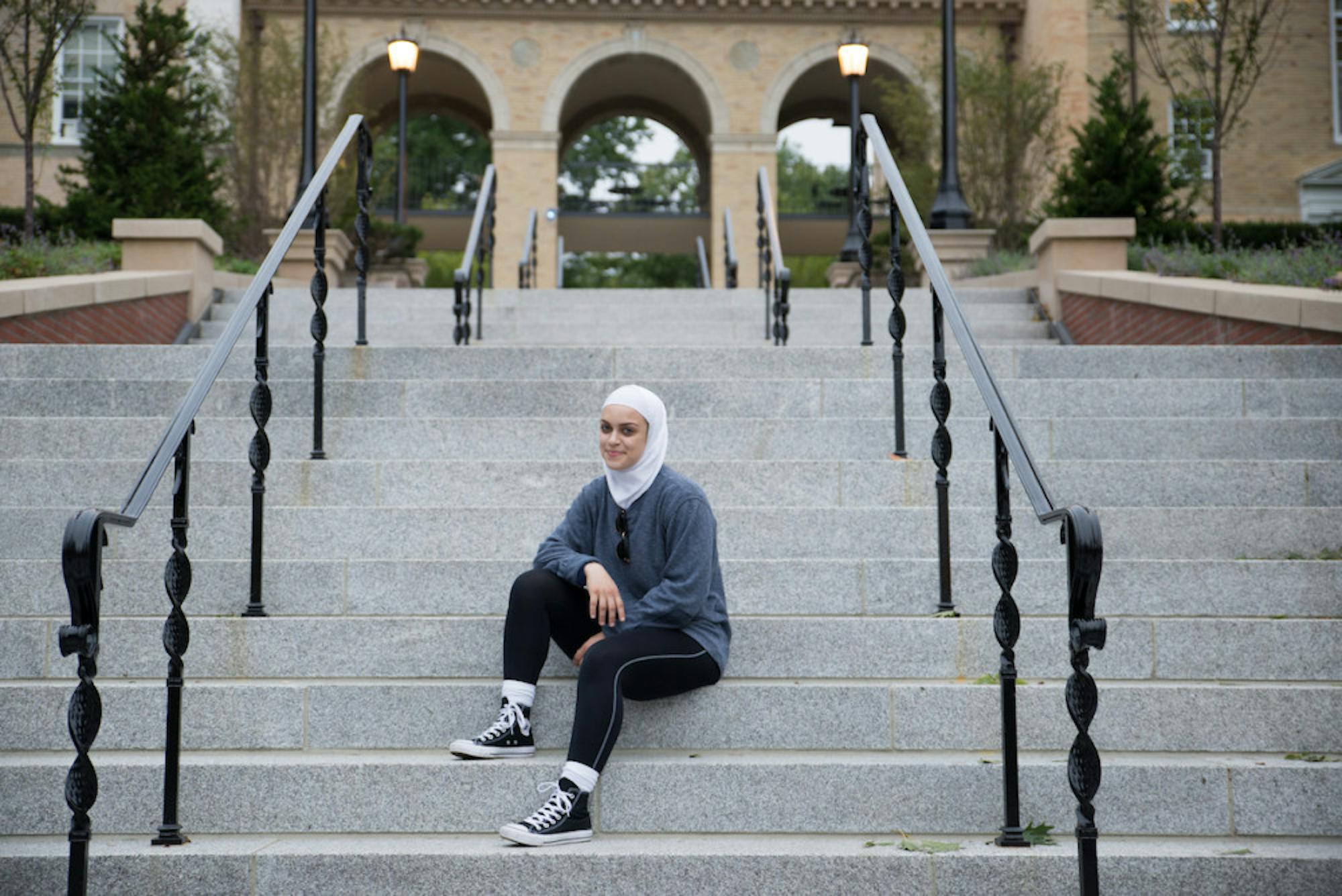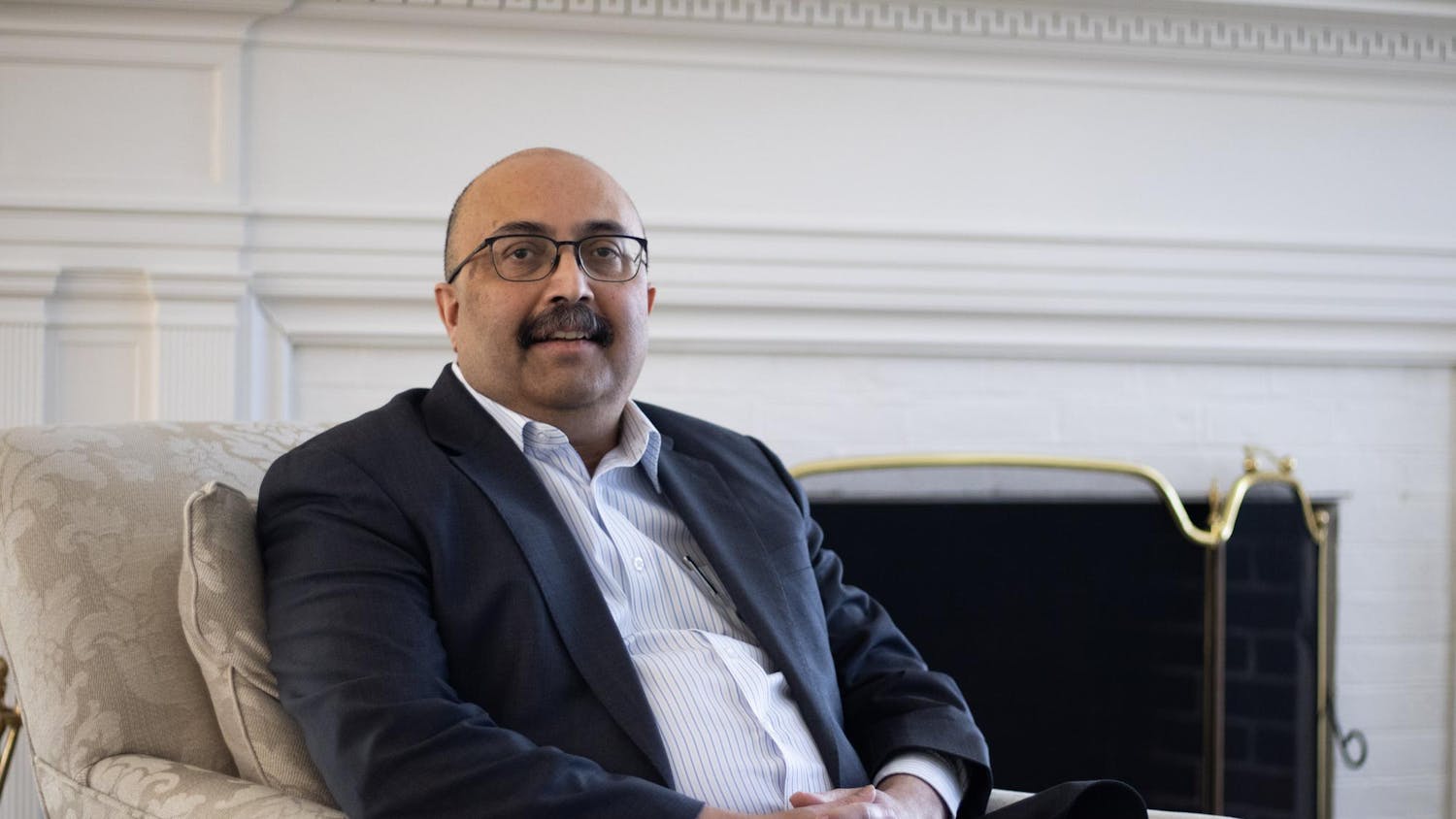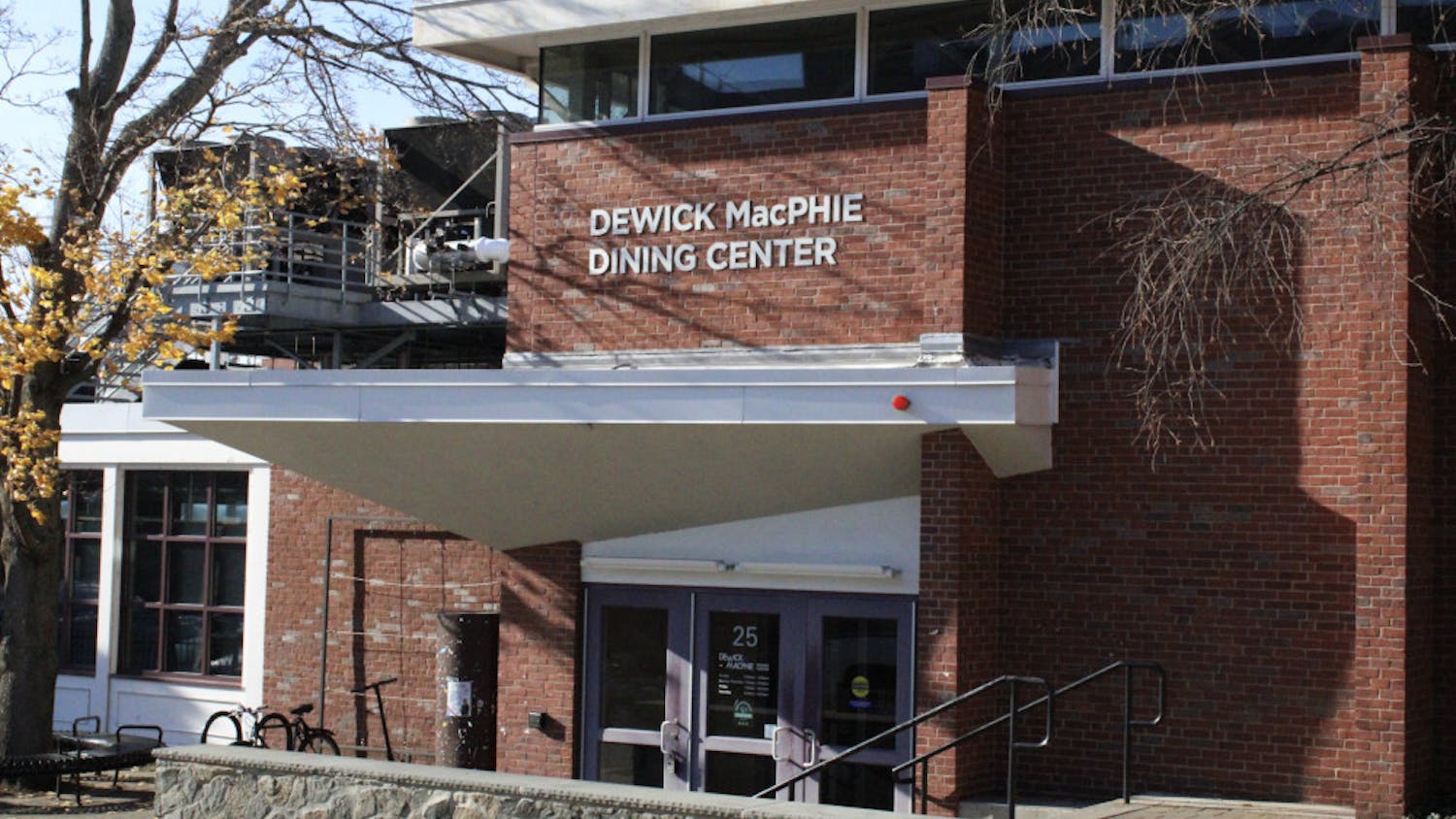The Tufts Community Union (TCU) Senate is currently supporting a new initiative to implement a mandatory cultural competency training program for Tufts faculty and staff, according to Walae Hayek, who serves as the TCU Women's Center Community Representative and is spearheading the initiative.
Hayek, a junior, said that a cultural competency training for professors could help improve the campus climate and make it easier for students and faculty to engage in positive interactions.
“Basically, [cultural competency training] is the idea that we have faculty who are educated in how to run a classroom with diverse students,” she said. “A lot of times professors may or may not realize that they're somehow oppressing students in their classrooms, either through not allowing them to speak or tokenizing their opinions or just refusing to acknowledge their experiences as valid...you can’t educate someone who doesn’t feel comfortable in your classroom.”
If implemented, the program would be administered through sessions run by students and administrators throughout the course of the academic year, according to the project’s official description, which Hayek shared with the Daily.
She added that administrative support in terms of allocation of resources and enforcement of compliance would be essential for the implementation of this program.
Chief Diversity Officer Mark Brimhall-Vargas said he met with Hayek to discuss her plans for the program and suggested she collect evidence to support her proposal. He noted that he and others are still in the process of discussing Hayek's project with her to advise her on meeting her goals.
In 2013, Tufts noted potential shortcomings of the university in the area of “Climate and Cultural Competence” in the Council on Diversity’s Report.
“The Council’s specific recommendations with respect to faculty and staff reflect the importance of increasing their awareness and understanding of issues of diversity and inclusion," the report reads. "We have work to do if we are to ensure that all our students feel themselves full members of our educational community.”
According to Hayek, however, Tufts has yet to do anything to solve this problem.
She said the first step would be allocating resources to collect the relevant data to assess the problem in the first place.
“Other schools have climate surveys, which collect information that you would otherwise not have about how students feel in the classroom or around other students, especially in terms of social justice issues. And we don’t have any survey that resembles that,” she said. “I think that’s a problem because it means we don’t have any tangible information to see how many students don’t feel comfortable.”
According to Brimhall-Vargas, the Office of Institutional Research and Evaluation regularly collects data on campus climate through confidential course evaluations, and it is for this reason he directed Hayek to seek permission to access these evaluations from Dean of Arts and Sciences James Glaser and Dean of Engineering Jianmin Qu following her meeting with him. Hayek was also counseled to prepare her own survey of campus climate, in case the course evaluations could not be provided to her because of these confidentiality concerns, Brimhall-Vargas said.
Hayek hopes to bring evidence to the TCU Senate so that she is able to garner enough support to publish a resolution recommending the implementation of a mandatory cultural competency training program.
“TCU resolutions can work as a kind of lobbying tool for convincing administration,” she said. “They recognize that the student body approves of something, so it just kind of emphasizes the importance of it.”
Hayek said that in designing the training curriculum, she is looking at schools like Columbia, Harvard and Pomona that have existing programs, but that her vision for Tufts’ program differs significantly.
One of Hayek’s unique ideas is to include students in the training sessions, in order to facilitate discussions with faculty that would simulate real classroom experiences.
“I want to step away from the traditional ‘do’s and don’ts’ kind of presentation, because they don’t do much besides bore the person listening,” she said. “I also want students in the training facilitating some of these conversations, because I feel like student-faculty interaction is way more powerful.”
Hayek said she anticipates backlash to the proposal, but she is hopeful that it will be implemented regardless.
“I don’t think it’s something that will be easily received and I don’t think it’s going to be effective during my time at Tufts,” she said. “I think just getting the conversation started and setting the groundwork for this will allow someone to come after me and be like, 'hey, let’s pick this up.'”
Problems with cultural competency at Tufts have been recognized from within the faculty as well.
Department of Education Lecturer Erin Seaton believes that developing a greater cultural sensitivity is a crucial skill for educators, and is currently working on a Tisch Fellowship to “explore the best practices used to train educators to develop greater cultural awareness.”
“At Tufts, and on college campuses across the country, students of color experience overt discrimination and daily micro-aggressions and silencings [sic],” Seaton told the Daily in an email. “I want to change this by providing faculty with tools to begin to openly address and challenge power, privilege and oppression in the classroom.”
Seaton said that she believes her Tufts faculty peers would be receptive to cultural awareness training.
“I feel like faculty in the the Education Department at Tufts are ready to engage in challenging conversations about racism, injustice, power and privilege in their classrooms and in our conversations with each other,” she wrote.
Seaton explained that she’d been confronted with her own unintended cultural insensitivity in the past, and that she understands why it’s important for educators to learn how to respond in those situations.
“It’s a very humbling and embarrassing experience, especially when you injure another person, but if you can recognize this as a moment when you have something important to learn, then you can move forward,” she explained.
Seaton said she spoke with Hayek over the summer, and that she strongly supports the initiative.
Hayek’s plan also includes repercussions for faculty who repeatedly receive complaints for a lack of cultural competency.
“One of the goals of this is to tackle cultural competency for both new and existing faculty, and to create repercussions for tenured faculty,” Hayek said. “Either repercussions or including this in your tenure profile, as something you should be required to do before you’re considered for tenure, because a lot of times tenured professors who receive complaints from students don’t really care.”
According to Seaton, however, repercussions may be counterproductive to the overall goal of the training, citing a recent study in the Harvard Business Review showing that mandatory cultural competency training tends to be less effective than when it is voluntary.
“I think it’s far more important to highlight the benefits of such training as a critical tool for faculty in the classroom rather than to frame this in terms of repercussions,” she explained.
According to Hayek, though, repercussions are a necessary element of battling cultural ignorance, especially among tenured faculty in the future.
“Sometimes it's only about the research you do that they offer you tenure — it could be completely detached from how you are in the classroom with students,” she said. “And I think that’s a problem because… basically you’re giving someone a lifetime job opportunity that involved everyday communication with students.”
Hayek emphasized that her intention in promoting this initiative is not to antagonize faculty members.
“We’re not saying professors are being deliberately oppressive or ignorant, just that it’s happening in the classroom and here’s why we should address that,” she said. “So its not attacking faculty; it’s more like let’s work together to make things better.”
CORRECTIONS AND CLARIFICATIONS: An earlier version of the article stated that TCUWomen's Center Community Representative Walae Hayek requested administrative support from Dean of Arts and Sciences James Glaser and Dean of Engineering Jianmin Qu. However Hayek actually requested data access from the deans in order to further progress on the project. The article also misattributed a “Search and Hire” committee for taking on a role of the Diversity and Inclusion Working Group, along with misconstruing the goals of the committee in the hiring process. Additional clarifications have been added to improve the accuracy of the article. The Daily deeply regrets these errors.





